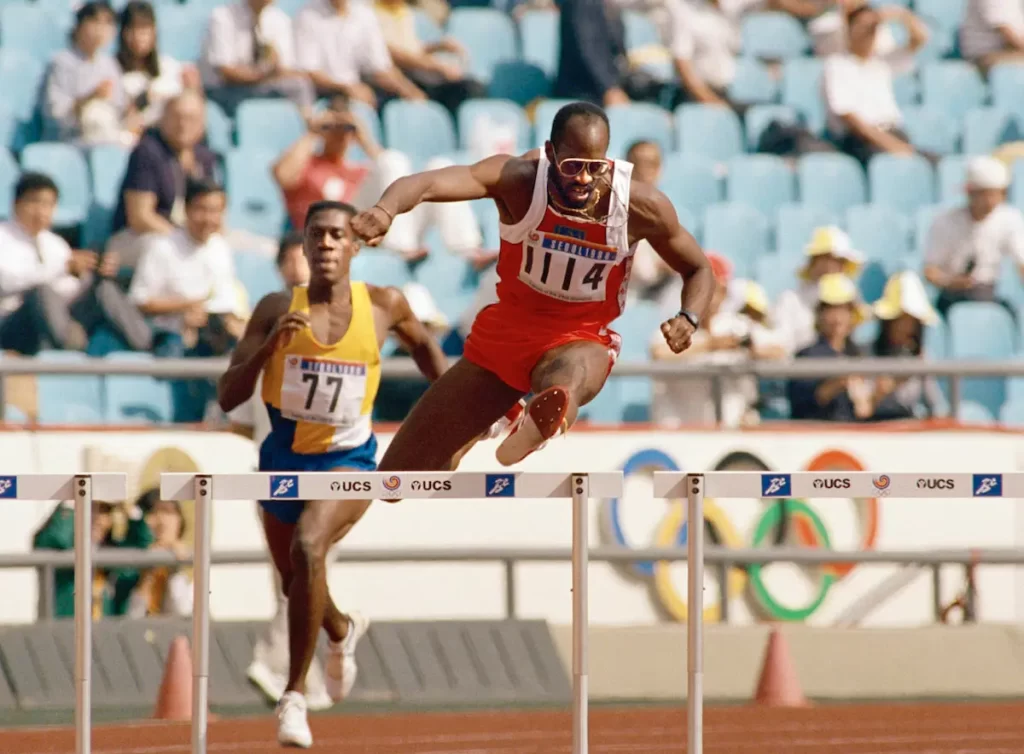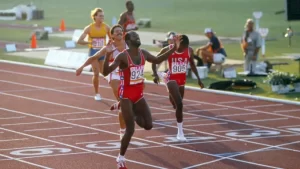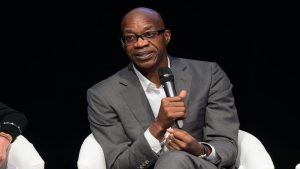
Edwin Moses has always had a passion for track and field, but reaching the Olympic Games seemed a daunting dream. As a child, Moses was smaller than his peers, standing at just 5 feet 7 inches and weighing only 117 pounds. In high school, he often found himself lagging behind during races. However, as he matured, his speed caught up with his height, and he began to dominate races rather than struggle to keep pace.
While studying physics and engineering at Morehouse College, Moses applied his analytical mind to the 400-meter hurdles. He calculated that taking precisely 13 steps between hurdles would maximize his efficiency. “It just made sense to find the most efficient path while tackling 400 meters of hurdles,” Moses explained in a CNN interview. This approach led him to become a two-time Olympic gold medalist and a two-time world champion.
Remarkably, Moses maintained an unbeaten streak for nine years, nine months, and nine days, winning 122 consecutive races—an unparalleled achievement in athletics. Despite this historic run, Moses remained focused on his training rather than his record. “I just did my program and let the winning take care of itself. I was always 100% ready,” he stated.

During his rise to prominence, Moses transformed from a reserved individual into a vocal advocate against racism, performance-enhancing drugs, and unfair compensation in athletics. His activism often put his amateur status at risk and placed him at the center of high-profile controversies. However, Moses believes his willingness to speak out has paved the way for today’s Olympic athletes. “I sacrificed my potential Olympic eligibility so that future athletes could benefit from the changes that followed,” he reflected.
Fifty years after he first made a name for himself, Moses continues to leverage sports as a platform for social change. He served as the inaugural chairman of the Laureus Sport for Good Foundation for two decades, helping children overcome various challenges in their lives. Now, in a different role with Laureus, he remains dedicated to using sports as a catalyst for positive change around the globe.
Moses’ extraordinary journey, both on and off the track, is the focus of the new documentary “Moses – 13 Steps,” produced by Oscar-winner Morgan Freeman. This film, a project Moses has envisioned for nearly 20 years, explores his life and achievements.
In a conversation about the documentary, Moses recalled the moment that ignited his desire to tell his story. At the 2005 Laureus World Sports Awards, Freeman introduced him, highlighting his remarkable record. “Morgan asked, ‘Why is there no film on Edwin Moses?’ That stuck with me,” Moses said, noting the encouragement from friends to share his journey.

Reflecting on the end of his unbeaten streak in 1987, Moses recalled feeling unwell due to food poisoning. Despite this setback, he performed admirably, running faster than he typically would early in the season. “I could have lost any of those 122 races,” he admitted. “If I hadn’t hit that last hurdle, I would have won.” Despite the loss, he remained optimistic, knowing that the world championships were just around the corner.
When discussing the intersection of politics and sports, Moses emphasized that politics is inherently woven into the fabric of athletics. “Sports has its own specific issues in politics, from drug tests to eligibility disputes,” he stated. He noted that while the United States lacks a sports minister, other nations have their sports directly tied to political structures, making politics a significant influence behind the scenes.
Moses also shared his perspective on the iconic protest by John Carlos and Tommie Smith during the 1968 Olympics. “As a young Black boy in Dayton, Ohio, it was empowering to see their example of activism,” he recalled. “It demonstrated the power of African American voices on global issues.”
Morehouse College, where Moses studied, played a pivotal role in shaping his character. “It changed my life,” he said. Moses credited the institution with instilling confidence and leadership skills that empowered him to pursue his dreams. He highlighted the supportive environment, noting, “We didn’t have to worry about anyone trying to sabotage us; everyone cheered for each other.”
Edwin Moses’ story is one of resilience, advocacy, and the unyielding pursuit of excellence, proving that with determination and the right support, seemingly insurmountable challenges can be overcome.





